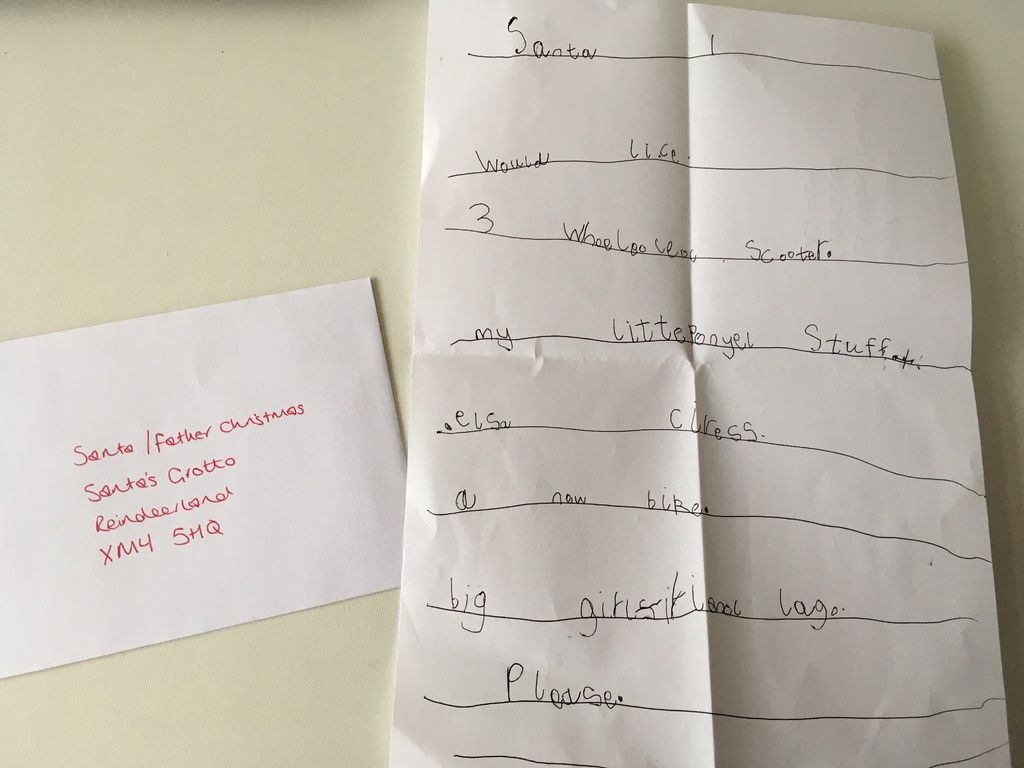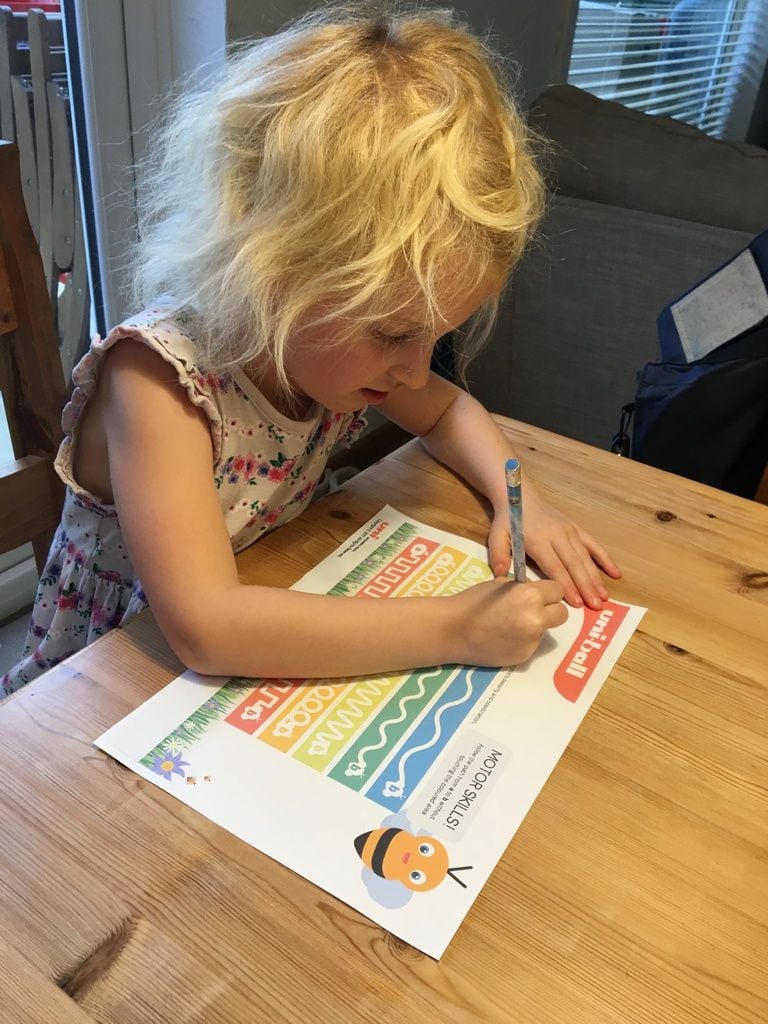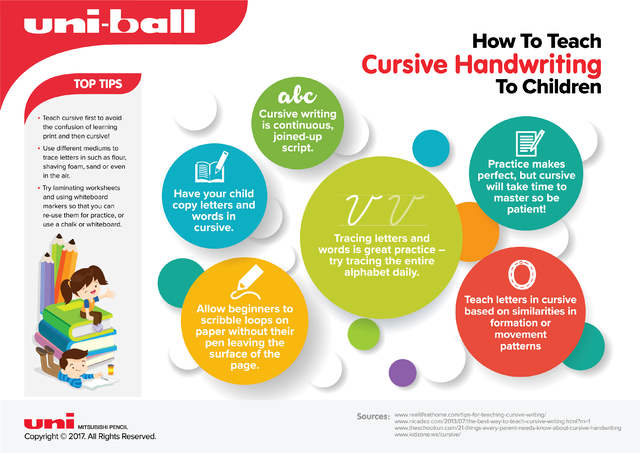Is handwriting still important?
Posted on
How often do you write something down with a pen and paper? I still do, daily.
But I can imagine that many people rarely lift a pen to paper nowadays.
I still prefer to write shopping lists on a scrap of paper, jot down to-do lists and I keep a weekly planner to keep the family organised with all our activities and goings-on.
Ben keeps on at me to do all our calendar stuff on my iPhone, then we can link up and he can see exactly what we have planned. But I refuse.
It worries me that I’ll lose my phone and all our plans with it. Then I’d be in a disorganised chaos!
We have appointments scheduled next year already for certain things, and I cannot remember them all in my brain for the life of me!
Plus, I still kind of like using a pen and paper. I find it therapeutic to write things down, especially lists. There’s no greater satisfaction than ticking things off a to-do list.
Is handwriting still important?
So yes, I believe handwriting still has a place in this day and age. It is still important to me.
Plus, imagine if something went terribly wrong and we lost all electricity. I’m sure I saw a film like that a few years back.
If all technology was forced to end, then we’d rely on handwriting even more.
There are still forms I receive which need to be filled in by hand. Most things do appear to be online nowadays, but there’s the odd thing I have to fill in and it’s important my data is legible.
It’s also so much nicer to receive a handwritten card isn’t it?
I’ve received a few which have been sent directly from online and they just don’t have that same personal touch in a type font.
Teaching children important handwriting skills
Handwriting is a hot topic in our house just now as my eldest, Bella, is five years old and in year one. She was able to write her name aged 3 and this was the only thing she could write one year ago when she started school. One year on and she can write the entire alphabet, all her numbers and is even able to write whole sentences!
This is the first year she wrote a letter to Santa by herself. I was so impressed!

‘Santa I would like 3 wheeled scooter, my little pony stuff, Elsa dress, a new bike, big girlfriend lego please’
Bella learns to write every day at school and we also encourage her to practice at home too. Luckily there are some amazing resources online which can be printed in a few moments to help children practice their handwriting at home too.
Improve your child’s handwriting with online resources from Uni-ball
I was approached to share my thoughts on handwriting by Uni-ball. If you don’t know who Uni-ball are, then who even are you?! Uni-ball sells stationery and some of the loveliest writing tools there are. I’ve always been a bit of a stationery geek and one of my favourite things about starting a new school year as a youngster was the stationery shopping!
It gave me a great sense of satisfaction choosing brand new notebooks, folders and pens for the new school year. I’d spend hours in Partners checking out all the different pens and sampling them. One of my favourite pens of all is the Uni-ball rollerball. There’s nothing quite like them. They glide effortlessly onto the paper, making writing seem like a breeze. You must know what I mean. There are those basic pens that seem to scratch the paper and make your handwriting look awful, but then there are the lovely gel and rollerball pens which always make handwriting look incredible.

Anyway, back to the point!
Uni-ball has released a set of resources to help your child learn and practice their handwriting! Bella, my five year old, reminds me of myself. I was always very academic and I loved to practice writing at home. It was never a chore. Bella is the same. She will choose to practice writing at home without being forced. She does it for fun! So she was thrilled when I presented her with a wad of worksheets I’d printed out from Uni-ball so she could practice her handwriting and motor skills (fun squiggly lines and shapes to her of course).
Grab the worksheets for your own children here: https://uniball.co.uk/handwriting-worksheets-for-children/
It’s so amazing that we have access to such great resources online at a click of a button nowadays. I always think I’d be super-duper intelligent if I’d had access to so much learning as a youngster!
I was pretty shocked when Uni-ball told me ‘the National Literacy Trust suggests that as many as 25% of UK adults are classed as ‘functionally illiterate’ with many struggling to write a birthday card or a cheque.’
Isn’t that insane?
I’d never have guessed this figure would be so high. That’s a QUARTER of adults. I had no idea. It’s so important we encourage our children to practice their handwriting and perhaps even some adults should begin to practice their own!
5 top tips to improve your child’s handwriting
It’s one thing to be able to form all the letters of that alphabet on a piece of paper, but it needs to be legible to ourselves and others. Uni-ball shares their top 5 tips to improve your child’s handwriting. Here are my thoughts on their tips:
- The right environment
Sitting at a table on a supportive chair will ensure they are comfortable and in the perfect position for writing. - Grip
Holding the pen or pencil correctly will make handwriting so much easier. Parctice the grip with your child. Bella used to find it quite tricky to grip the pencil properly, but once she worked it out it made writing a lot simpler. - Use the correct paper
It’s a lot easier to write on lined paper so there’s a guide for a straight line and the size of the letters. Switch your child from plain to lined paper and notice the difference. - Slow down
We all make mistakes when we rush things. It’s not a race. Encourage your child to take their time and learn at their own pace. Taking their time over forming perfect letters is better than completing tasks quickly, but not so legibly. - Make writing fun
Learning should always be a fun process and never a chore. Create word games to make practicing seem like play rather than a bore.
Luckily as I mentioned, Bella loves learning to write so for us it's not a chore. I have no idea if Reuben will be the same. Many people tell me boys aren't as interested academically as young as girls!
Now Bella is in year one, I'm sure she'll begin to learn cursive handwriting soon. Uni-ball recommend learning it first, rather than learning one style then the next, which makes sense.
To help your child begin to learn cursive writing click on this infographic for some pointers:


